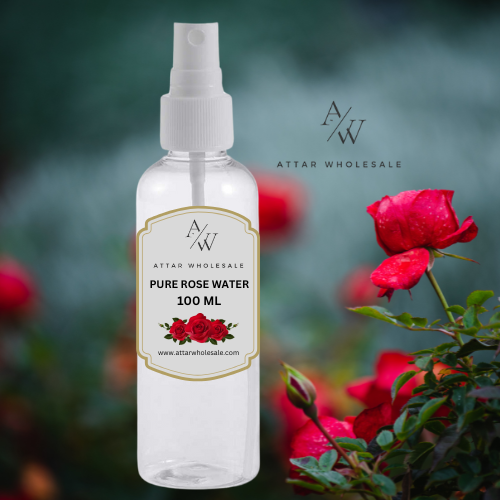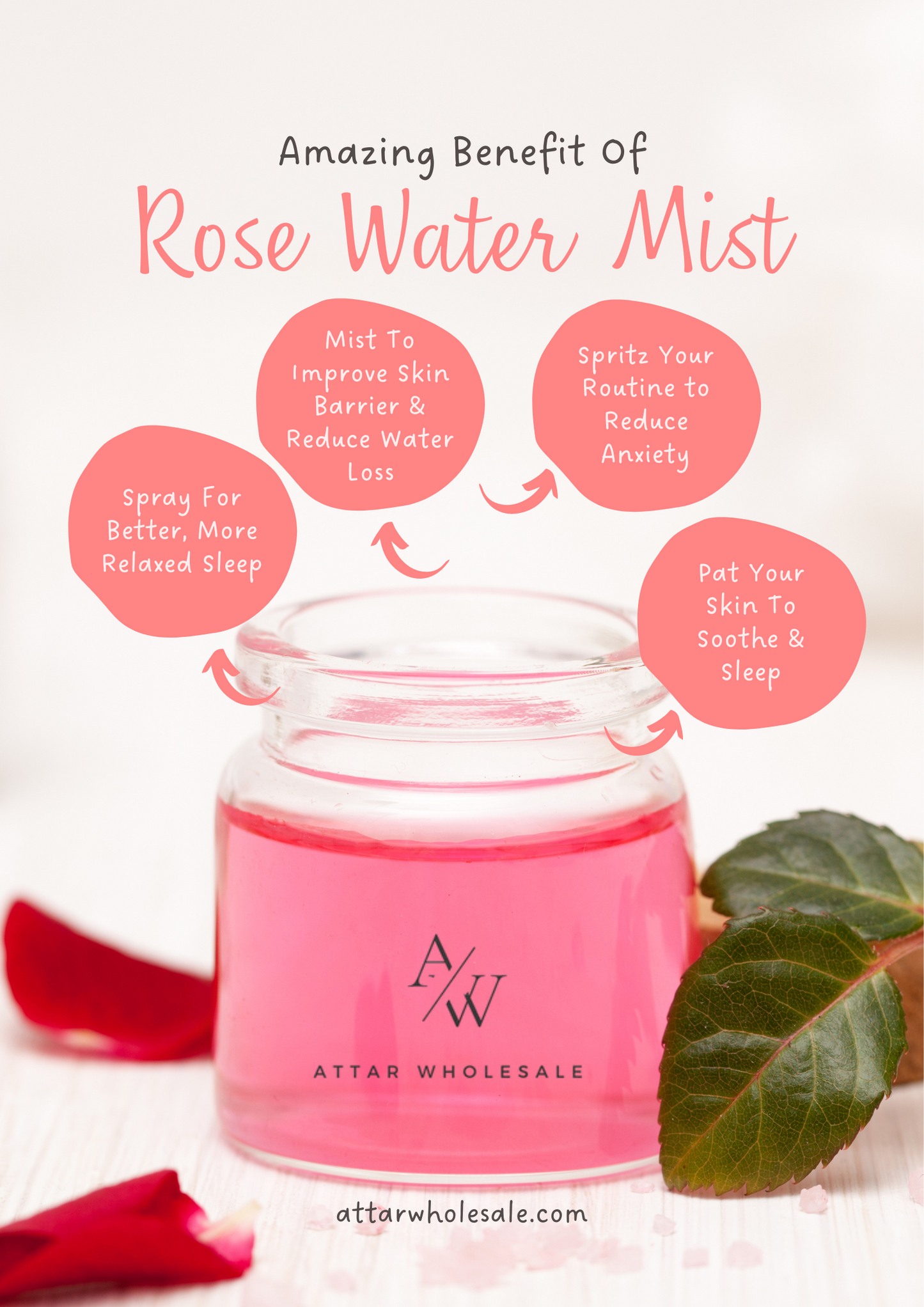1
/
of
2
Rose Water (Gulab Jal)
Rose Water (Gulab Jal)
Regular price
Rs. 330.00
Regular price
Sale price
Rs. 330.00
Taxes included.
Quantity
Couldn't load pickup availability
Rose water is a type of hydrosol produced by steam-distilling rose petals. It has been used for centuries for its fragrance, flavor, and various cosmetic and culinary applications. Here are some key points about rose water:
1. **Production**: Rose water is typically produced by steam-distilling fresh rose petals. The petals are placed in a still with water, and steam is passed through them. The steam carries the aromatic compounds from the petals, which then condense into a liquid form—rose water.
2. **Fragrance**: Rose water has a delicate and sweet floral fragrance, reminiscent of fresh roses. This aroma makes it a popular ingredient in perfumes, cosmetics, and skincare products.
3. **Culinary Uses**: Rose water is used in cooking and baking in many cultures, particularly in Middle Eastern, Indian, and Persian cuisines. It adds a subtle floral flavor to dishes such as desserts, drinks, and savory dishes.
4. **Cosmetic Applications**: Rose water is valued for its skin-soothing and hydrating properties. It is often used as a natural toner to balance the skin's pH, tighten pores, and refresh the complexion. It can also be used in facial masks, creams, and other skincare products.
5. **Aromatherapy**: The aroma of rose water is believed to have calming and mood-enhancing effects, making it a popular ingredient in aromatherapy and relaxation rituals.
6. **Traditional Medicine**: In some traditional medicine systems, rose water is used for its purported medicinal properties, including its ability to alleviate stress, promote relaxation, and improve digestion.
Overall, rose water is a versatile and beloved ingredient with a long history of use in various cultures for its fragrance, flavor, and potential health and cosmetic benefits.
View full details
1. **Production**: Rose water is typically produced by steam-distilling fresh rose petals. The petals are placed in a still with water, and steam is passed through them. The steam carries the aromatic compounds from the petals, which then condense into a liquid form—rose water.
2. **Fragrance**: Rose water has a delicate and sweet floral fragrance, reminiscent of fresh roses. This aroma makes it a popular ingredient in perfumes, cosmetics, and skincare products.
3. **Culinary Uses**: Rose water is used in cooking and baking in many cultures, particularly in Middle Eastern, Indian, and Persian cuisines. It adds a subtle floral flavor to dishes such as desserts, drinks, and savory dishes.
4. **Cosmetic Applications**: Rose water is valued for its skin-soothing and hydrating properties. It is often used as a natural toner to balance the skin's pH, tighten pores, and refresh the complexion. It can also be used in facial masks, creams, and other skincare products.
5. **Aromatherapy**: The aroma of rose water is believed to have calming and mood-enhancing effects, making it a popular ingredient in aromatherapy and relaxation rituals.
6. **Traditional Medicine**: In some traditional medicine systems, rose water is used for its purported medicinal properties, including its ability to alleviate stress, promote relaxation, and improve digestion.
Overall, rose water is a versatile and beloved ingredient with a long history of use in various cultures for its fragrance, flavor, and potential health and cosmetic benefits.




